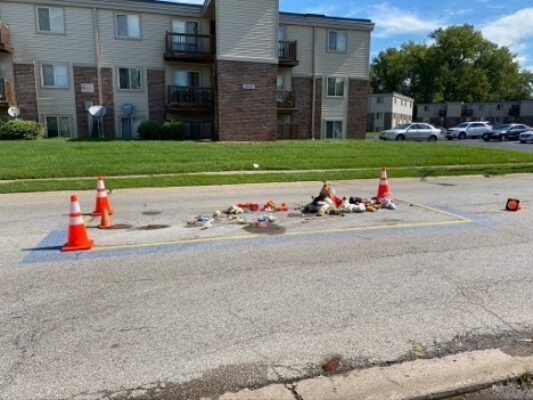5 Results

Ten years after the death of Michael Brown, the conditions that led to the uprisings remain
Aug 09 2024
Today is the ten-year anniversary of Michael Brown’s death and a critical moment to reflect on the uprisings. While some view these contemporary revolts as solely driven by police aggression, our modern unrest narrative is more complex. Through interviews for my new book Slow and Sudden Violence, Ferguson and Baltimore community leaders identified police brutality as a cause of the uprisings, but they also voiced other significant frustrations.

Q&A with Mark Robert Rank, author of The Random Factor
Apr 23 2024
by James Byard/WUSTL PhotosIt’s comforting to think that we can be successful because we work hard, climb ladders, and get what we deserve, but each of us has been profoundly touched by randomness. Chance is shown to play a crucial role in shaping outcomes across history, throughout the natural

How Today’s Tight Labor Market Could Have Lasting Impacts on Poverty
Dec 18 2023
By Katherine Newman and Elisabeth Jacobs, co-authors of Moving the Needle: What Tight Labor Markets Do for the PoorFor nearly half a century, scholars and policymakers alike have pointed to the devasting impact of joblessness for individuals, families, and communities. William Julius Wilson’s cl

Build Back Better? Why We Need Reimagine our Social Institutions
Nov 18 2021
By Leslie Paik, author of Trapped in a Maze: How Social Control Institutions Drive Family Poverty and InequalityThe pandemic has exposed so clearly how families everywhere in this country struggle to manage the competing demands of work, childcare, education and health. With this awareness comes

Post-pandemic Will the Poor Get Poorer?
Oct 29 2020
Anirudh KrishnaAnirudh Krishna’s essay “The Poorest After the Pandemic” is featured in Current History’s November special issue on the pandemic’s global ramifications. Krishna is the Edgar T. Thompson Professor of Public Policy and Political Science at Duke University. His research investigates